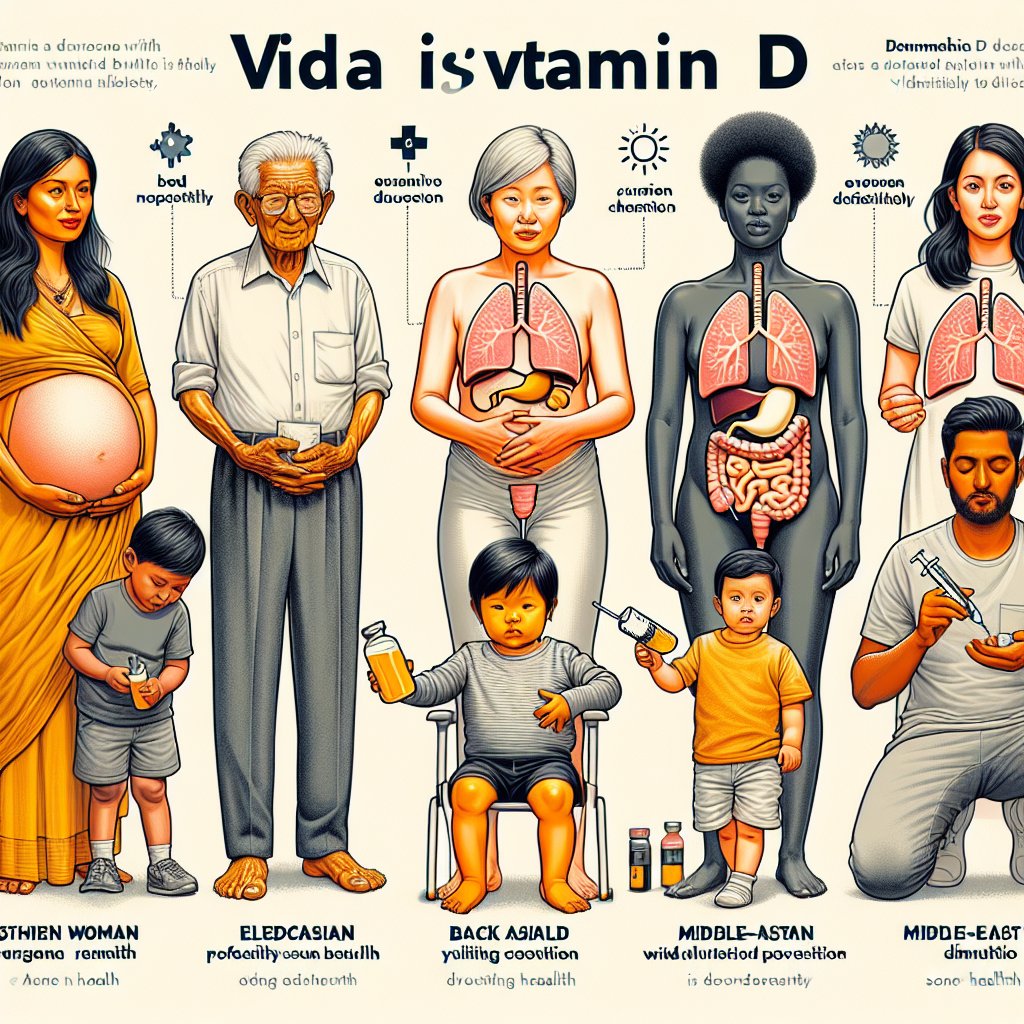Discover the Power of Vitamin D Shots: Unveiling Their Benefits, Administration, and Side Effects!
Understanding the Importance of Vitamin D
Before delving into the world of vitamin D shots, let’s first shed some light on the exceptional importance of this vital nutrient. Vitamin D plays a crucial role in maintaining healthy bones, supporting immune function, and regulating mood. Research has also linked adequate levels of vitamin D to a reduced risk of chronic diseases such as heart disease and diabetes. With our modern lifestyles often limiting sun exposure, many people are turning to alternative methods to ensure they have an adequate intake of this essential vitamin.

Advantages of Vitamin D Shots
When it comes to vitamin D supplementation, there are various options such as oral supplements, fortified foods, and vitamin D shots. However, recent research has indicated several advantages of opting for vitamin D shots over other forms of supplementation. Firstly, it has been found that vitamin D shots lead to a rapid increase in vitamin D levels in the blood, ensuring a quicker correction of deficiency. Moreover, for individuals with malabsorption issues, such as celiac disease or inflammatory bowel disease, vitamin D shots can be particularly beneficial as they bypass the digestive system, ensuring effective absorption.
Exploring the Effectiveness of Vitamin D Shots
You might be wondering how effective are Vitamin D shots in treating deficiencies? Well, the evidence is quite compelling. According to a study published in the American Journal of Clinical Nutrition, individuals who received Vitamin D shots showed a significant increase in their blood levels of Vitamin D compared to those who took oral supplements. This suggests that Vitamin D shots may be a more effective method for addressing severe deficiencies.
Furthermore, researchers at the University of Eastern Finland found that high-dose Vitamin D3 injections were more effective in quickly raising the Vitamin D levels in the body compared to daily oral supplementation. This is especially promising for individuals with malabsorption issues or other conditions that hinder oral absorption of nutrients. Overall, these studies support the effectiveness of Vitamin D shots in efficiently addressing Vitamin D deficiencies.

Administration of Vitamin D Shots
Vitamin D shots are administered through intramuscular injections, typically in the deltoid muscle of the upper arm or the gluteal muscle in the buttocks. The dosage of vitamin D shots varies depending on the individual’s needs and their current vitamin D levels. According to the guidelines from the Endocrine Society, a typical dosing regimen could include 50,000 IU of vitamin D2 or D3 once a week for 8 weeks or 600,000 IU of vitamin D2 or D3 every 8-12 weeks.
It’s important to note that the frequency of injections may vary based on the severity of vitamin D deficiency and individual response. After the initial loading phase, a maintenance dose may be recommended to sustain adequate vitamin D levels in the body, typically administered every 4-12 weeks based on ongoing monitoring and assessment by a healthcare professional.
Potential Side Effects and Risks of Vitamin D Shots
While vitamin D shots can offer numerous benefits, it’s essential to be aware of potential side effects and risks associated with their administration.
Common Side Effects
Some individuals may experience mild side effects after receiving vitamin D shots. These can include redness, swelling, or pain at the injection site. Additionally, some people may feel fatigued or develop a headache following the injection. It’s important to note that these side effects are usually temporary and should subside within a few days.
Rare Risks
Although rare, there are certain risks associated with vitamin D shots. In some cases, an allergic reaction may occur, leading to symptoms such as hives, difficulty breathing, or swelling of the face, tongue, or throat. It’s crucial to seek immediate medical attention if any of these symptoms manifest.
Individuals with certain medical conditions, such as sarcoidosis or other granulomatous diseases, should exercise caution when considering vitamin D shots, as they can potentially exacerbate these conditions.
Before opting for vitamin D shots, it’s advisable to consult with a healthcare professional to assess individual risks and benefits.
(Word count: 183)

6. Comparison with Oral Supplements
When it comes to boosting your vitamin D levels, you might wonder whether vitamin D shots or oral supplements are more effective. Let’s take a closer look at the efficacy and absorption rates of both options.
Research published in the Journal of Pharmacology and Pharmacotherapeutics indicates that vitamin D shots have higher absorption rates compared to oral supplements. The study suggests that administering vitamin D via injections results in better absorption, making it a potential option for individuals with malabsorption issues or those looking for a quick boost.
However, it’s essential to consult with a healthcare professional to determine the most suitable method based on your individual needs and health status.
Importance for Specific Populations
For individuals with specific health conditions or lifestyles, the significance of vitamin D shots cannot be overstated. Research has shown that people with malabsorption issues, such as Crohn’s disease or celiac disease, are at a higher risk of vitamin D deficiency. In such cases, vitamin D shots can be a game changer, ensuring that these individuals receive an adequate supply of this essential nutrient.
Likewise, individuals who have undergone gastric bypass surgery, which can impact the body’s ability to absorb nutrients, may benefit significantly from vitamin D shots.
Furthermore, people with limited sun exposure, such as those living in northern latitudes or those with indoor jobs, and older adults who may have difficulty synthesizing vitamin D efficiently, can also derive immense benefits from targeted vitamin D supplementation through shots.

Consultation and Medical Advice
Before starting any new supplement regimen, especially vitamin D shots, it’s crucial to consult with healthcare professionals. Your doctor or a qualified healthcare provider can assess your individual needs and provide personalized guidance on whether vitamin D shots are suitable for you.
Consulting a professional is essential because they can determine your current vitamin D levels through a blood test. Research has shown that about 42% of American adults are deficient in vitamin D, which is concerning because this nutrient plays a crucial role in bone health, immune function, and mood regulation.
Additionally, healthcare professionals can evaluate your overall health, any existing medical conditions, and medications you’re taking to ensure that vitamin D shots are safe and beneficial for you. They can also recommend the appropriate dosage to avoid any potential side effects or interactions with other medications.
Ultimately, seeking medical advice before starting vitamin D shots is a proactive step towards harnessing the benefits of this essential nutrient while prioritizing your health and well-being.
Summarizing the Benefits of Vitamin D Shots
Throughout this article, we’ve delved into the extraordinary potential of vitamin D shots. Research has consistently shown that vitamin D plays a crucial role in supporting overall health, from boosting immunity to promoting bone health and reducing the risk of chronic diseases.
Studies have highlighted that vitamin D deficiency can lead to various health issues, emphasizing the significance of ensuring optimal levels of this vital nutrient in the body. Vitamin D shots offer an efficient and effective way to combat deficiency and reap the benefits of this essential vitamin.
Encouraging Informed Decision-Making
When considering vitamin D shots, it’s important to consult with a healthcare professional to assess individual needs and devise a personalized plan. Informed decision-making empowers individuals to prioritize their health and well-being.
By staying informed about the benefits, administration, and potential side effects of vitamin D shots, individuals can make confident choices regarding their health and take proactive steps to enhance their overall quality of life.


